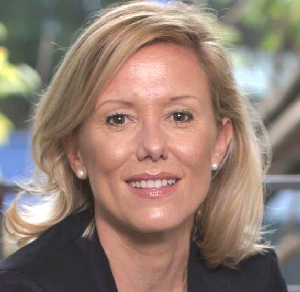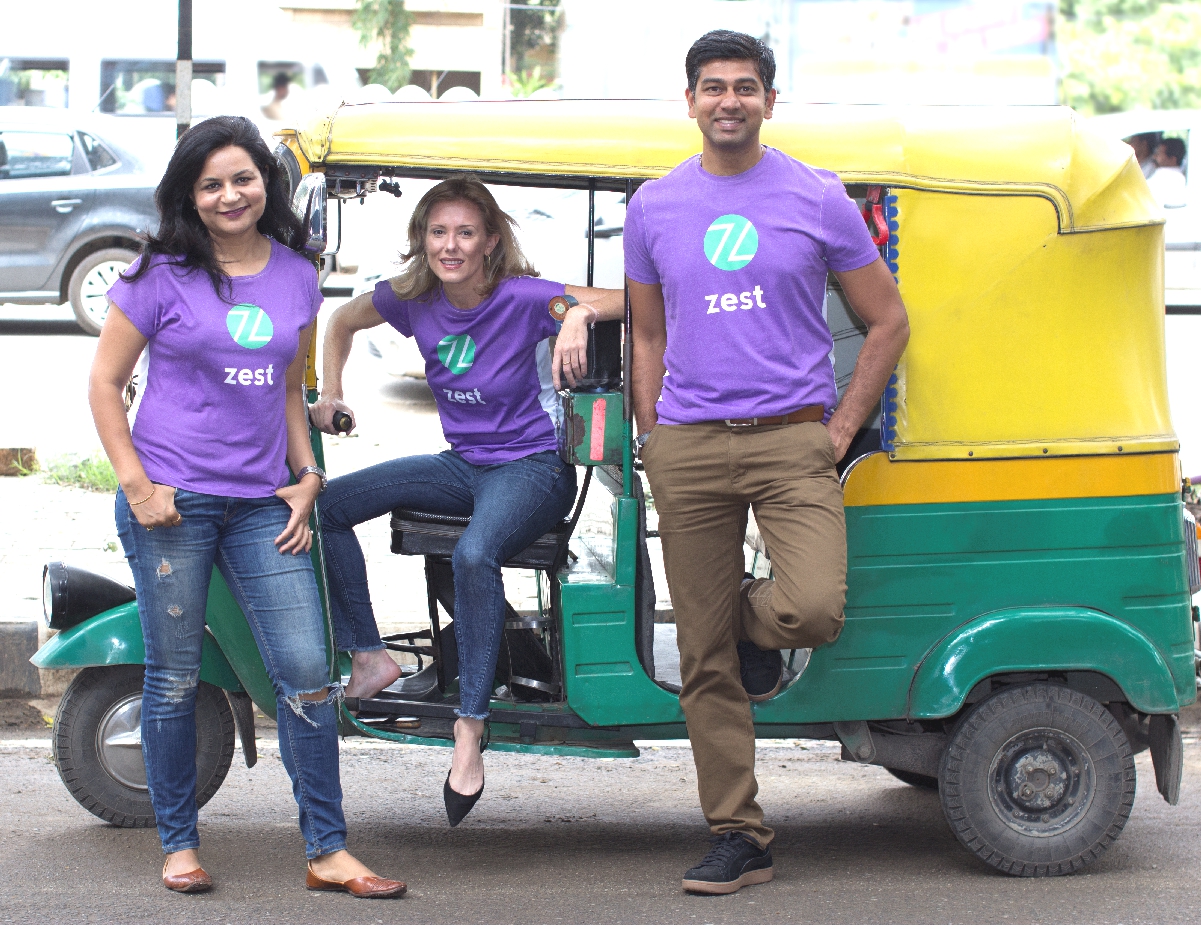FORWARD ON EMAIL

One question I get asked a lot (especially by other female founders) is how did you navigate fund-raising? I think the answer is basically the same, irrespective of gender, but I do think it's important that female founders become aware of the numerous women out there who have raised serious amounts of money. The startup ecosystem in India is so healthy and strong that they should always feel comfortable to reach out and seek advice. I am so grateful for the discussions I have had over the years with so many other inspiring women, from Ashwini Asokan, Sairee Chahal to Mabel Chacko, Upasana Taku and many, many more.
The journey for an entrepreneur is not an easy one, all the more for a woman! So it's critical to have a support system and network to tap into. We know like other spheres of life, women have found it difficult to break the glass ceiling in the investing space. Infact, fewer women choose the startup life (and even fewer manage to get funded). While there are issues around social and cultural conditioning that need to be continuously questioned, I think it's really important that we publicise and accentuate voices of women in the tech and PE community. I have personally benefited from having an amazing network of inspiring women around me - either as friends, former managers and mentors or by seeking out amazing leaders on social media and following them.

Caveat - fundraising is a relative game and, whilst we obviously have had some success at ZestMoney, we could still learn a lot from others. As we built ZestMoney, we had the opportunity to interact and raise funds from some of the biggest names in the ecosystem. One thing we are proud of is that we have always raised money from investors we really like and respect and not had to make any sacrifices in our plans to raise funds. We have a great cap table with industry specialists and, so far, we have found each investor ourselves, i.e. without using an investment bank.
Here are my top tips for fundraising as a first-time founder:
- Think big - You must have heard the adage that it takes 100 hours a week to build a small company and 100 hours a week to build a big one - so you may as well build a big one. I think that perhaps because we came to entrepreneurship a bit later in life (we were 34-37), we had a real ‘all or nothing’ attitude. All three of us, as founders, gave up relatively comfortable lives, jobs and incomes in London to do this so we felt that there was no point doing it half-heartedly. We used to tell investors we had no Plan B and that ZestMoney would be the last job we would ever have. I think this attitude is really important - especially when all of you are aligned. It means you have absolute comfort knowing that you will make things work - no matter what. I think this amount of commitment has been obvious to our investors.
- Founders are everything - I can’t emphasise how much your co-founders and founding team matter. Especially in the early days, investors have very little data to go on so they are basically taking a call on you, your team and your vision. Priya and Ashish and I had worked together for a number of years at Wonga and knew our industry and product inside out. We also knew each other and our respective strengths and weaknesses...and we knew we made a great team.
One thing that works so well for us is that we have massively complementary personalities and skillsets with a clear delineation of responsibility. At the same time, we have very deeply shared value systems based on our early upbringings which means we are aligned in our vision. I think this came across in the early pitches where investors are looking for a good work dynamic and chemistry. To this day, I still believe the single biggest overlooked success factor in a startup is the vision and dynamic shared between the founders. Smart investors (and you only want smart investors) will sense healthy chemistry immediately and feel reassured. - Pick your investors wisely - Entrepreneurs naturally spend a lot of time focusing on how to raise money and give investors what they want. I believe it's also important to spend time understanding the investor, what they bring to the table and how aligned you are with their viewpoint. This is especially important in sectors like financial services, where some expertise and understanding of the industry makes a big difference to the quality of discussion in board meetings, for example. We are very fortunate to have largely specialist fintech investors - and this was a very deliberate focus from Day 1. We had learnt from our previous startup, Wonga, that having Board Members with deep expertise in your space is hugely helpful in challenging times. In fact, we deliberately targeted Ribbit Capital for our Seed round because we felt that they have the deepest expertise in fintech and, in particular, Point-of Sale lending.
- Be sure of your plan - Having a very clear vision is one thing, but it's also critical to have a well developed plan and strategy - even if you accept that things may change down the line. Investors need to see that you have thought through everything and it's really important that you stick to your plan and don't modify it to suit investors' whims. In the early days, we got some push back from traditional VCs in India over our strategy and choice to be a tech platform vs being an NBFC. Many had a very specific sense of how these businesses should be built because of what they had seen previously. We had absolute conviction in our model, which was truly designed for India and based on all our learnings from working in the digital lending industry for years before.
At times, it would have been tempting to change our strategy to suit these investors. They would actually say things like, “Well, we would consider funding you if you were an NBFC/lending to SME”, but never once did we waver in our conviction for our model and our plan. Our hypothesis was based on a lot of sound research and experience. We had confidence that we would find the right investors who would understand - and, of course, we did. It’s critical to have deep conviction in your strategy at all times - sometimes you will be wrong, but it's not possible to lead strongly by accommodating the opinions of all your investors/board members. - Stereotypes are to be completely ignored - I think most women who have made successful careers in traditionally male-dominated industries have done so by completely ignoring any stereotypes and rising above such thinking. Both myself and Priya had worked for over a decade in investment banking and technology industries and many times been one of a handful of women in our roles/departments. Had we obsessed about this, we would not have risen so fast. We also feel that India is a relatively conducive market for female leaders in financial services - many of the former and present bank CEOs are female. We are super fortunate to not have faced any explicit bias in our ZestMoney journey and ultimately we hope we have paved the way for more women to feel that they can operate in what were traditionally considered more male dominated industries.
- Know your numbers - When fund-raising, one of the most important things to be on top of is your data. Everything from the size of your market to the number of customers you have should be second nature. There is nothing more alarming than a founder who appears to not be into the details. The good thing is that, when your company is growing, you naturally get obsessed with the data and love people asking retention rates and cohort credit costs!
- Path to profitability - Perhaps because we all had deep experience in the financial services space, not for one moment did we feel that the goal of building a business was not to be profitable. We have been confused over the years to see companies with seemingly no path to profitability raise money at crazy high valuations. Thankfully, that period seems to have come to an end and investors are now publicly obsessed with ‘path to profitability’ and companies like ZestMoney are well placed to benefit in that environment. No matter what industry you are in, I would suggest that having a clear path to profitability is an essential building block of any business plan.
- Timing is everything - Remember that different business models and industries are attractive to investors at different times. So many businesses and products are brilliant and much needed, but just 'before their time'. Don't take it personally if your idea isn't flavour of the month. Anyway, the thing that is flavour of the month will soon be old news eventually. When we started Wonga in India, we were too early. A lot of the key infrastructure was not ready. Since then, and since starting ZestMoney, we have seen a huge uptick in digital consumer adoption, increased mobile data penetration, demonetisation and a political push for the digital economy, the build out of key infrastructures, such as India-Stack, Digital KYC and UPI, as well as the present COVID situation - which brings digital payments under the spotlight again. We are so grateful for these tailwinds and it only motivates us to push harder and make the impact of ZestMoney even bigger than we initially imagined.
- Have a contingency plan - There will always be times when fund-raising is hard, and when business is not going as planned. COVID has shown us that you never know what's around the corner and you need to always plan for all eventualities. This means being frugal with costs and never getting carried away with things like fancy offices and excessive marketing. It also means having ways to make money even in tough times when your original revenue may be challenged.
- Appreciate randomness and gratitude - When all is said and done, always be appreciative of the random nature of the universe and startup ecosystem! The system is not perfect, and, many times, companies who should have raised money will struggle and those with no sensible business plan will raise excessive amounts. Don’t over think this - just focus on your own business and plan and be grateful for the opportunity you have been given. Being able to spend your days building something that can genuinely impact the world with complete autonomy is such an amazing luxury. As founders, we still spend a lot of time being grateful for the opportunity we have been given.